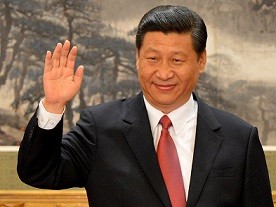President Xi Jinping’s visit to the United Kingdom is expected to generate 30 billion pounds worth of commercial deals and create over 3,900 jobs across the U.K., according to a report by the Global Times.
The British Embassy issued a statement on Tuesday, saying that the agreement between the two countries affecting the creative, retail, energy, health, technology and financial sectors, among others, will be signed during the course of President Xi's trip.
According to China's Ministry of Commerce, the investment sum is unprecedented and has surpassed those achieved by previous Chinese leaders who visited the U.K.
For the U.K., it will provide more export opportunities for local companies seeking to expand in the Chinese market.
As of Monday night, six Chinese companies have signed contracts with their U.K. counterparts, including Lakala Payment Co., NCF Group and 21Vianet Group.
The development signifies further cooperation between the two countries as various companies from both sides are collaborating to maximize their services and investments.
Beijing-based Lakala, for instance, signed an agreement with Allpay Ltd., the U.K.'s leading payment services provider, to jointly construct a cross-country financial service platform.
Currently, more than 500 Chinese companies are operating within the U.K., said Gao Hucheng, China's commerce minister.
In 2014, there was a significant increase in bilateral trade by 15.3 percent which translated to $80.9 billion. By the end of August of this year, the U.K. has already invested $19.6 billion in China with the number of projects over 7,992.
Meanwhile, Chinese direct investment in the U.K. amounted to a total of $12.8 billion in 2014, a huge increase from $1.35 billion in 2010.
"Leaders of both countries have a vision of bilateral cooperation which will benefit both nations," said Li Jian, a research fellow at the Chinese Academy of International Trade and Economic Cooperation.



























